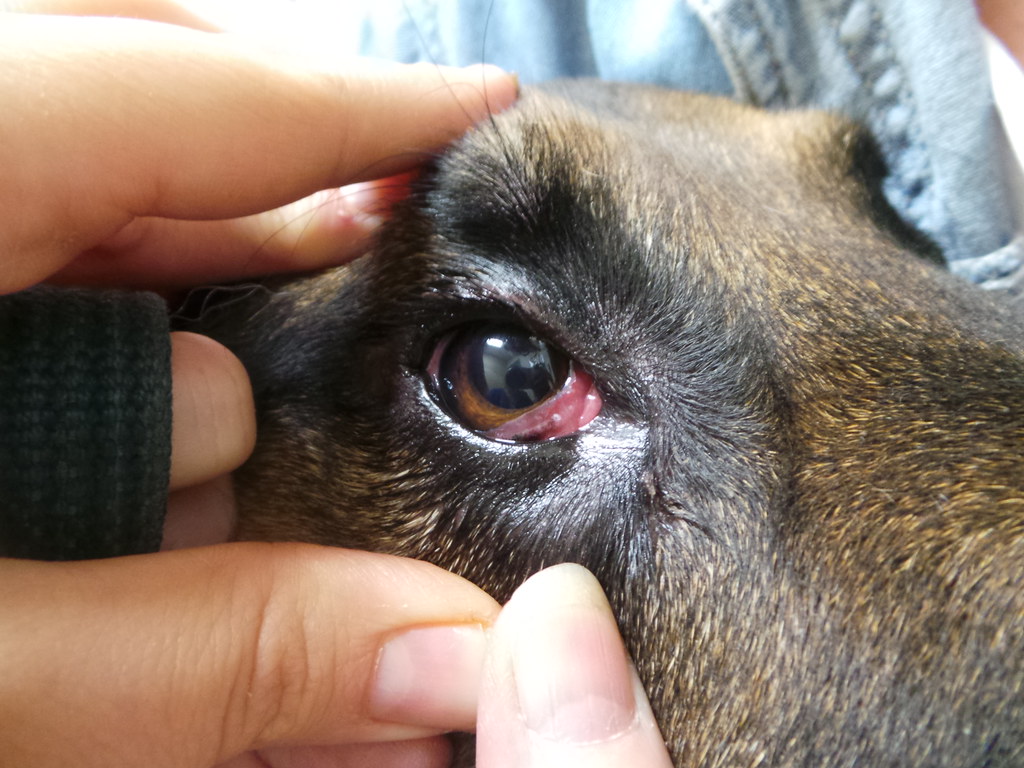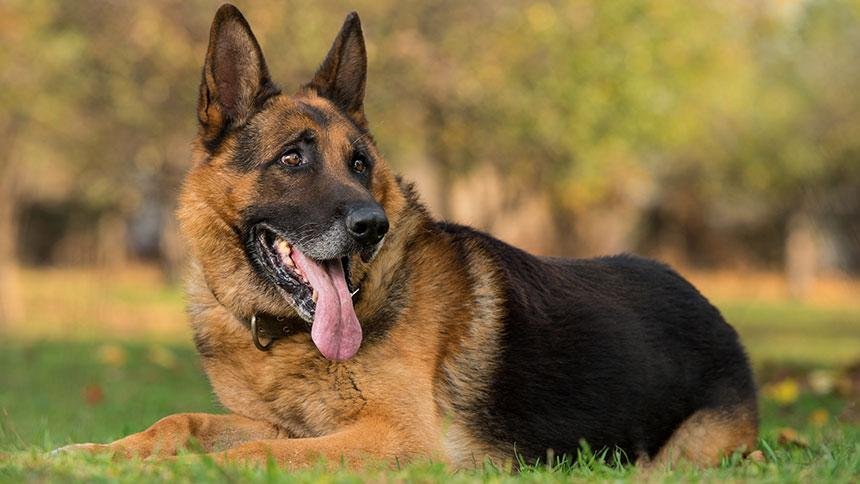Because you care so much about your dog, let’s discuss German Shepherd Dog Common Health Issues and Problems.
we know you want to take good care of him. Therefore, we will tell you about the health issues we are discussing with you about the life of your shepherd.
Most diseases and health conditions are genetic, meaning they are related to your pet’s breed. This does not mean that your dog has these problems; this means he is in more danger than other dogs.
To give you an idea of German Shepherd dogs we will explain some of the most common German Shepherd Health issues. Of course, we do not cover every problem associated with your German shepherd here, so always check with a vet if you notice any unusual signs or symptoms.
This guide and the health evaluation schedule contained in it help us and you to be cautious about your pet’s health care needs. At the end of this article, we explain what you can do at home to see your shepherd is healthy and stay active and happy at home.
You know what to look for, and we’re all good at knowing that we’re taking care of your pet as much as possible.
List of German Shepherd Dog Common Health Issues and Problems
German shepherd health problems back legs
Since her back legs are sloping rather than up and down, your German Shepard is less prone to back pain. If your dog does not like to climb up or down the stairs or feels sluggish, let us know so that we can investigate back injuries.
Bleeding disorders
German shepherds Health wise they have a wide variety of inherited bleeding disorders called hemophilia than any other species. Severe trauma to your pet during severe bleeding or until we have surgery can seem normal. We perform a diagnostic test for blood clotting time before surgery.
Bloat
Gastric dilatation and Volvulus, also known as bloating, usually occurs in dogs with deep, narrow chests, including your German shepherd. When the dog is swollen, the stomach twists and fills with gas. If left untreated, the disease can quickly become fatal, sometimes within 30 minutes.
Your dog may fall back, or come up with nothing (but nothing coming out), be fickle, have a potbelly, or lie in a prayer position (front feet down, back down). If you see symptoms, take your pet to an emergency hospital immediately! Preventive surgery allows the abdomen to be pressed or pierced on the spot.
Bone pain
Growing shepherds suffer from a painful inflammation of the long bones of the legs (this condition is called eosinophilic panosteitis or eo-pan). We look for this situation after the test. Io-pan usually does not cause permanent damage but requires pain medication.
Cancer
Cancer is the most common cause of death in older dogs, and your friend is especially prone to lymphoma and cancer tumors on the kidneys and uterus. Call us if he suddenly becomes weak or pale, or if it appears on his skin, especially the head or legs.
Degenerative myelopathy
This neurologic condition is characterized by weakness in the hind legs and nerve function, and this affects German shepherds more than any other species. If your dog has this disease, she will become more weak and disabled in the back legs and eventually suffer from incontinence and paralysis of her headquarters. Rehabilitation, exercise and dietary supplements can help, but there is no cure.
Dental problems
Dental disease is the most common chronic problem in pets, affecting 80% of dogs by the age of two and health dental health check and information on dental developments is important. It starts with tartar build-up on the teeth and increases the infection of the gums and tooth roots.

Clean your dog teeth regularly and make sure to keep dog teeth clean and white. It is also important to prevent certain types of toys and treats, including chewing legs, tennis balls, bones, and ice cubes as these may be the cause of the broken and damaged teeth in dogs.
Digestive disorders
There are many digestive conditions that can cause recurring or chronic vomiting, diarrhea, or weight loss in shepherds. To help prevent these problems, feed him a good quality pet that we recommend. Most importantly, avoid snacks and table food. Fat rich (like pork ears), sodium or artificial ingredients are bad for your friend’s digestion.
Dog Dry eye

Dog Dry eye, also known as keratoconjunctivitis sicca or KCS, is a common disease among German shepherds Health issues. Shepherds of the disease are called pannus. Symptoms include dark pigmentation of the cornea; A dull, dry form instead of a shiny, shiny eye; squinting with a thick discharge or pawing at the eye. We conduct a tear test every year. If she has this disease, we suggest that you apply it for the rest of her life.
Hip dysplasia
You have probably heard about this inherited disease that causes the hip joints to become irregular and cause arthritis; This is common among German shepherds. You may notice that he has lameness in his hind legs or difficulty lying down. We can treat arthritis to prevent discomfort and pain — the sooner the better.
Remember that overweight dogs develop arthritis two years earlier than normal weight, causing unnecessary pain and suffering. Surgery is sometimes a good option in severe and life-limiting cases of hip dysplasia.
Infections
German shepherds are susceptible to bacterial and viral infections — all dogs can get — such as parvovirus, rabies, and distemper. Most of these infections can be prevented by vaccinating, we give your dog the diseases we see in our area, his age, and other factors. Your friend may also suffer from skin and ear infections, which can be uncomfortable and painful. Look for scratching, scratching or scratching skin or ears.
Joint disease
If your German Shepherd puppy is allowed to grow too quickly, the cartilage in her joints may not attach properly to the bone. Surgery may be needed to address a problem called osteochondritis desiccants, so it is best to avoid this by sticking to our recommended growth rate of not more than four pounds per week.

Do not overfeed her, weigh your puppy every three to four weeks, do not give her calcium supplements, and feed a larger breed puppy than an adult diet. Ob is a serious health problem in dogs and is a serious disease that causes arthritis, certain types of cancer, back pain, and heart disease.
Even if your pal is eager to give him food when he sees you with those hearty eyes, you will love him to death with human food and feasts.
Parasites
All kinds of worms and bugs attack your dog’s body, inside and out. Everything from fleas to ticks to ear mites affects her skin and ears. Hookworms, roundworms, heartworms, and whipworms can enter her system in many ways:
drinking unclean water, eating or stepping on stools, or getting infected with mosquito bites. Some of these parasites can spread to you or your family members and cause serious concern to everyone.
For your pet, these parasites can cause pain, discomfort, and sometimes even death, so it is important that we test for them regularly. We also recommend the preventive medication she needs to stay healthy.
Perianal fistula
Shepherds suffer from this painful, chronic condition in which one or more areas around the anus are sore. Constipation, bleeding, constipation, fecal incontinence, signs of stress or obvious pain when the area is smiling, and smelly discharge. The condition is difficult to treat, and usually, we need surgery to remove the problem tissue.
Spaying or neutering
The best thing you can do for your German shepherd is to keep him neutral (called spaying in females). In males, we remove the testicles surgically, and in females, we remove the uterus and ovaries.
Spaying or neutering reduces the likelihood of certain types of cancers and eliminates the possibility that your pet may become pregnant or unwanted puppies. Doing this surgery also gives us the opportunity to assess and address some of the diseases your shepherd develops while your pet is under anesthesia.
Gastric Dilatation-Volvulus
Gastric dilatation-volvulus (GDV) is a life-threatening condition that primarily affects large breed dogs such as German shepherds. The condition is caused by a distended stomach that rotates, trapping air and gas in the stomach and intestines.
This reduces blood flow to the stomach and intestines, and can ultimately lead to death. GDV requires emergency treatment, which typically includes surgery to correct the rotation and release the trapped air and gas.
Diabetes Mellitus
Diabetes mellitus is a common endocrine disease in German Shepherds. It is caused by a lack of the hormone insulin, which results in high blood sugar levels. Left untreated, diabetes can cause blindness, kidney failure, and other health problems.
German Shepherds with diabetes are typically treated with daily insulin injections and a special diet.
Epilepsy
Epilepsy is a neurological disorder that affects dogs and is characterized by recurrent seizures. German shepherds are one of the breeds of dogs that are more prone to developing epilepsy.
There is no known cause for epilepsy, but it is thought to be the result of a combination of environmental and genetic factors.
Dogs that have a family history of epilepsy are more likely to develop the condition than those that don’t.
Symptoms of epilepsy include muscle spasms, loss of consciousness, and uncontrolled movements.
Summary
German Shepherds are prone to a variety of health issues and problems. Owners should be aware of these and take steps to prevent and treat them.
Regular vet check-ups are important, as is providing your dog with a good diet and plenty of exercises. With proper care, your German shepherd can live a long and healthy life.

